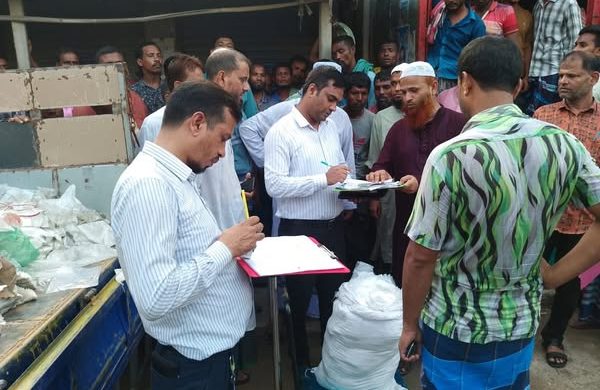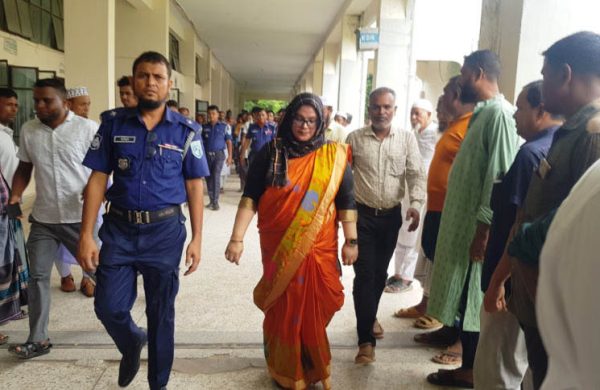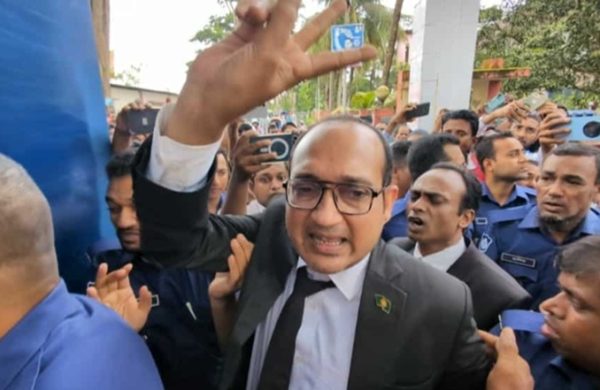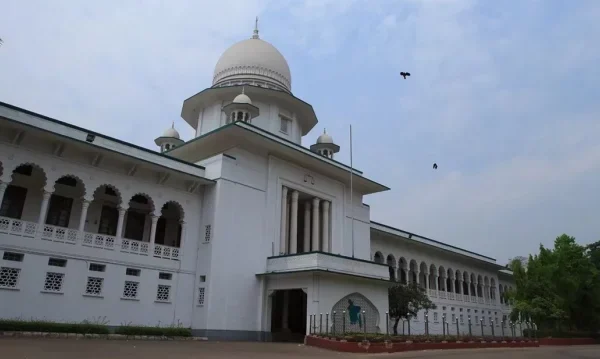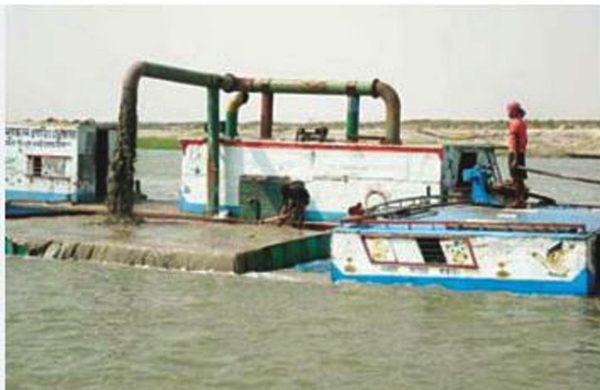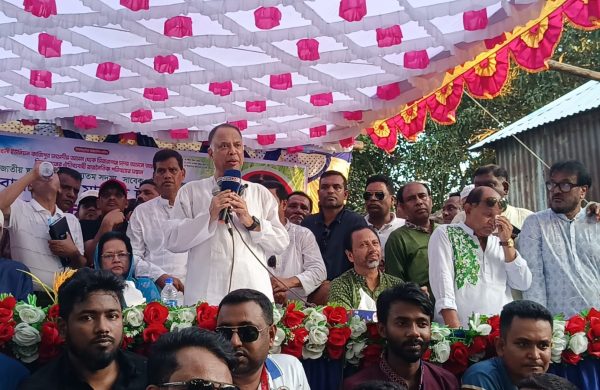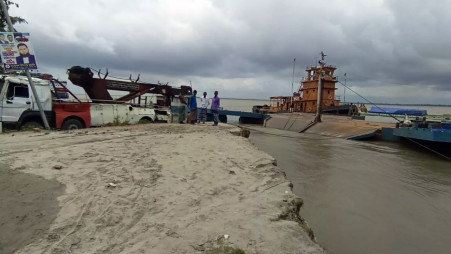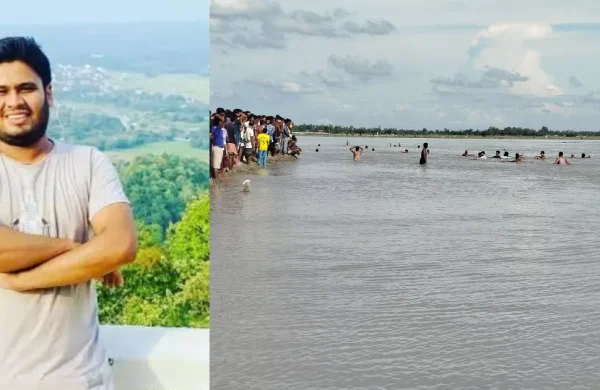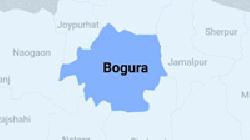4.8 lakh narcotics cases pending despite deadline
- Update Time : Saturday, June 28, 2025

Staff Correspondent:
Despite legal provisions for quick resolution, more than 4.8 lakh narcotics cases have been pending across the country as of March 31 this year, according to a Supreme Court report.
As per the law, such cases should be disposed of within 90 to 135 working days. However, over 81,600 cases have remained unresolved for more than five years, said the report.
Legal experts say the main reasons for the delays include the absence of witnesses, alongside shortage of judges, designated courts, and public prosecutors.
As of June 22, a total of 16,763 accused in narcotics cases were in jail, according to the Department of Prisons.
In one example, Rab arrested 44-year-old Abdul Mannan on June 19, 2008, with 14 bottles of Indian Phensedyl in Dhaka’s Pallabi area and filed a narcotics case against him.
Charges were filed on July 22 that year, with ten witnesses listed. The next year, on March 25, the Joint Metropolitan Sessions Judge’s Court-2 of Dhaka framed charges against him.
Years later, on April 26, 2016, the case was transferred to the Special Judge’s Court-4 of Dhaka for trial proceedings.
Since then, 70 hearings have taken place, but only three witnesses have testified.
The trial is yet to conclude, as witnesses have repeatedly failed to appear and give their statements. Meanwhile, the accused, who is currently on bail, is now absconding, said a court staffer.
In another case, police arrested Raju, 29, with 175 yaba pills in Dhaka’s Jatrabari on December 17, 2015.
On the same day, police filed a narcotics case with Jatrabari Police Station, accusing Raju. Police submitted charges against him on January 20, the following year.
On July 21 of 2016, the court framed charges against him. So far, out of 27 hearings, only one of the eight listed witnesses has testified.
Dewan Ashik, bench assistant of the court, said witnesses are not appearing despite efforts by the court to ensure their presence.
WHAT LEGAL EXPERTS, OFFICIALS SAY
Supreme Court lawyer and former deputy attorney general Farhad Ahmed said many witnesses in narcotics cases are day labourers, rickshaw pullers or restaurant workers who often change locations, making it difficult to bring them to court.
In 2019, the High Court directed lower courts to dispose of narcotics cases within six months of taking cognisance. As many as 1,55,866 such cases were pending across the country till December 31, 2018. The courts disposed of 8,977 narcotics cases in 2018, according to a Supreme Court study report published on February 5, 2019.
The High Court said these trials could be completed in a day if judges, investigation officers, and prosecutors handled them efficiently. It also directed deputy commissioners and superintendents of police to ensure witness attendance.
Farhad said he could not confirm whether those directives were followed.
SC lawyer Shishir Manir, head of legal research firm Law Lab, said the low number of judges is a major reason for delays, with only one judge per 90,000 people.
“Despite legal provisions, dedicated narcotics courts have not been set up, overburdening general courts. Poor training, political appointments, inadequate evidence collection, and frequent procedural delays reduce conviction rates under 10 percent,” he said.
He said the 2018 anti-drug drive caused a large increase in case numbers.
According to him, the majority of the accused are small-scale users or low-level dealers from low-income groups.
Wrongful arrests are common due to procedural flaws, and youth, low-income, and marginalised groups are disproportionately affected. The large number of narcotics cases has burdened the judiciary and led to overcrowded prisons, he said.
He said the filing of so many cases causes rights violations, as prolonged detentions and extrajudicial actions take place.
Manir recommended setting up dedicated narcotics tribunals, increasing the number of judges, prosecutors, and investigators, and improving training and use of forensic tools.
Muhammad Majharul Islam, secretary general of Bangladesh Judicial Service Association, said more designated tribunals and prosecutors would help reduce the backlog.
Supreme Court spokesperson Muajjem Hussain said 13 committees led by HC judges have been formed recently to speed up trial proceedings.
According to media reports, over 22,000 people were arrested between May 12 and June 25, 2018, during the anti-narcotics drive. During that period, 160 people were killed in alleged “shootouts” involving law enforcement agencies.
Contacted, Mostaque Ahmed, spokesman and public relations officer at the Department of Narcotics Control, said the agency files charge sheets on time.
The officials, who serve as witnesses in narcotics cases, appear before the courts and also bring other witnesses on scheduled dates for depositions, he said.
He also acknowledged a shortage of judges and said the number of cases has increased due to expanded DNC activities.
The Narcotics Control Act, 2018, requires trials to be completed within 90 working days. If not possible, the court may extend the deadline by 30 working days and then another 15 working days if necessary, with written notice to the Supreme Court and the government.


